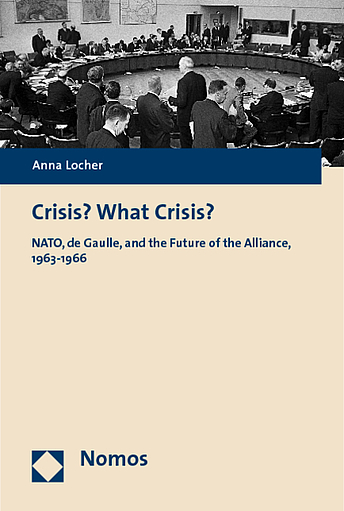englischIn the mid-1960s, Western decision-makers felt that NATO had reached a crossroad. This impression was precipitated by the question of President Charles de Gaulle"s intentions with respect to the French role in NATO, but also reflected more deep-seated issues. The search for a new meaning for NATO in an era of decreasing East-West tensions, renewed European strength, and individual commitments outside of the treaty area ultimately resulted in an overall process of intra-alliance bargaining. This study addresses the different alliance concepts and policies of selected NATO states and investigates the influence wielded by small allies and institutional actors, such as NATO secretaries-general and ambassadors, in the re-orientation of the Atlantic alliance. Drawing on newly available sources from the NATO archives and archives in the United States, Canada, Britain, Germany, Belgium, and the Netherlands, the book identifies the actors who perceived NATO to be in crisis, and shows why; it also investigates the ensuing political initiatives, strategies for coping with the new situation, and their policy impact. The study concludes that the smooth absorption of the French withdrawal from NATO"s military arm in 1966 was eased by previous multilateral and institutional debates and the collective response to the challenge since 1963.
Für viele westliche Entscheidungsträger stand das westliche Verteidigungsbündnis Mitte der 1960er Jahre am Scheideweg. Dieser Eindruck entstand durch die Allianzpolitik von Frankreichs Präsident Charles de Gaulle, spiegelte aber auch weitergehende Streitfragen. Abnehmende Ost-West-Spannung, erneuerte europäische Stärke und nationales Engagement außerhalb des NATO-Vertrags führten zu einer umfassenden Suche nach einem neuen Sinn für das Bündnis. Die vorliegende Studie untersucht die Allianzpolitik ausgewählter Bündnisstaaten sowie den Einfluss kleinerer Staaten und institutioneller Akteure wie des NATO-Generalsekretärs auf die Neuorientierung der Allianz. Auf der Basis von neu zugänglichen Quellen aus dem NATO-Archiv und nationalen sowie persönlichen Archiven in Nordamerika und Europa enthüllt die Untersuchung, warum Entscheidungsträger die Allianz in der Krise sahen und mit welchem Erfolg sie Gegenmaßnahmen und weiterführende Initiativen ergriffen. Die Studie kommt zum Schluss, dass das Bündnis den französischen Rückzug aus der militärischen Struktur 1966 auch dank multilateraler Vorarbeit und kollektiver Antworten auf die Herausforderungen ab 1963 verkraftete.


